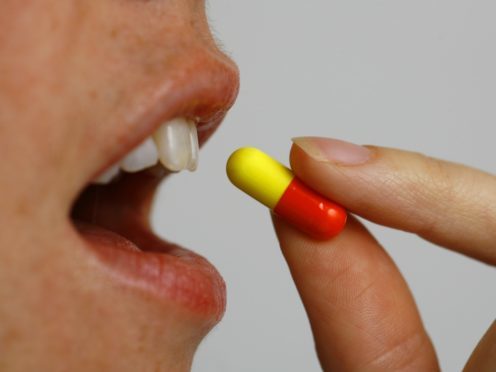A weight-loss pill has been hailed as a potential “holy grail” in the fight against obesity after a major study showed it did not increase the risk of serious heart problems.
Researchers say lorcaserin is the first weight-loss drug to be deemed safe for heart health with long-term use, which could see regulators approve it for prescription on the NHS.
Taken twice a day, the drug is an appetite suppressant which works by stimulating brain chemicals to induce a feeling of fullness.
A US study saw 12,000 people who were either obese or overweight given the pills or a placebo – with those who took the drug shedding an average of nine pounds in 40 months.
Further analysis showed no big differences in tests for heart valve damage.
Tam Fry, of the National Obesity Forum, said the drug is potentially the “holy grail” of weight-loss medicine.
“I think it is the thing everybody has been looking for,” he told the Press Association.
“I think there will be several holy grails, but this is a holy grail and one which has been certainly at the back of the mind of a lot of specialists for a long time.”
“But all of the other things apply – lifestyle change has got to be root and branch part of this.”
CAMELLIA-TIMI 61: Lorcaserin, a selective serotonin 2C receptor agonist, facilitated sustained weight loss without apparent increased risk of major adverse CV events in a high-risk population of overweight or obese patients. https://t.co/VAHLhfwfgs #ESCCongress pic.twitter.com/DuLde75d25
— NEJM (@NEJM) August 26, 2018
Professor Jason Halford, an obesity expert at the University of Liverpool, told the Daily Telegraph that the drug’s availability in the UK depends on whether it is approved by NHS regulators.
“We don’t have any appetite suppressants available on the NHS. We have a massive great gap between lifestyle modification and surgery,” he said.
“At the moment you either get support and advice, or you get to surgery – there is nothing in between.
“This could be widely prescribed if it is approved by Nice (the National Institute of Health and Care Excellence) in the UK.”

The Food and Drug Administration, the US medicines watchdog, approved lorcaserin’s use in some adults in 2012.
The drug has been on sale there since 2013, where it costs between 220 and 290 dollars (£155-£225) a month.
The study into its long-term effects was led by Dr Erin Bohula, a cardiovascular medicine expert at the Harvard-affiliated Brigham and Women’s Hospital.
She said: “Patients and their doctors have been nervous about using drugs to treat obesity and for good reason. There’s a history of these drugs having serious complications.”
As well as affecting the heart, there are concerns weight-loss drugs can lead to mental health issues.
The results of the study into lorcaserin were discussed at the European Society of Cardiology in Munich on Sunday and have been published by the New England Journal of Medicine.
The researchers found after one year 39% of participants given lorcaserin had lost at least 5% of their starting weight, compared with 17% of those given placebo.
Analysis also showed fewer people taking lorcaserin developed diabetes, 8.5% compared with 10.3% on placebo.
Tests for heart valve damage were done on 3,270 participants, but no significant differences in rates were identified.
Suicidal thoughts or behaviour were reported in 21 people taking lorcaserin compared with 11 people given placebo, however those taking the weight-loss drug had a history of depression.
The researchers said: “Among overweight or obese patients with atherosclerotic cardiovascular disease or multiple cardiovascular risk factors who were being treated with dietary and exercise interventions, those who received lorcaserin had better long-term rates of weight loss than those who received placebo at a median follow-up of 3.3 years.
“The higher weight-loss rates were achieved without an accompanying increase in the risk of cardiovascular events.”
